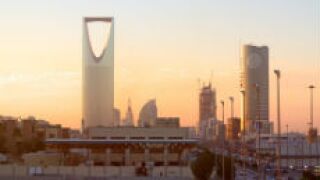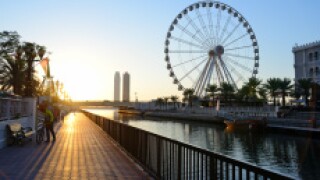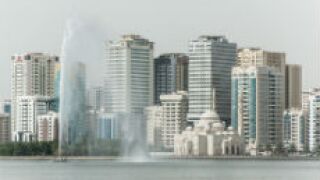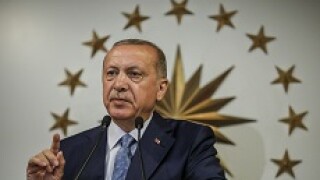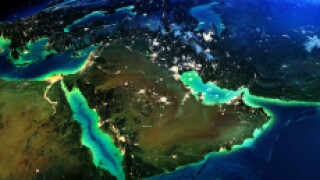Middle East
-
State oil company Saudi Aramco is expected to tap the bond market in the next fortnight for a deal that could be anywhere in the region of $7bn-$15bn, according to bankers in the region away from the deal. Estimates of the premium Aramco will have to pay over the Kingdom of Saudi Arabia curve is being discussed as negative to plus 15bp, depending on the size of the deal.
-
Aramco’s eagerly awaited $69.1bn deal to buy petrochemical firm Sabic landed this week, prompting speculation over the financing’s structure and timing. Loans bankers are expecting to cover a large portion of the deal and expect it will be well supported, writes Mariam Meskin.
-
The Government of Sharjah printed a $1bn seven year sukuk on Tuesday. The strength of demand surprised even Tom Koczwara, director of the emirate’s debt management office.
-
Confidence in Turkey is flagging this week as the currency is fluctuating and Turkish president Recep Tayyip Erdogan has imposed limitations on Turkish banks lending lira.
-
Akbank has closed an oversubscribed loan, welcoming eight new banks to its syndicate and kickstarting the refinancing season for Turkish banks. The deal was signed amid increasing market uncertainty in Turkey, with the lira having weakened and uncertainty surrounding local elections this weekend.
-
Turkey has had a sensational quarter, with borrowers from the country raising more than $10.2bn in the market — the highest total in history. But with its central bank short of reserves and its currency struggling to hold on to its gains, a cap in hand visit to the IMF may be around the corner, and Turkish issuers’ best funding days may be behind them.
-
The Government of Sharjah has launched its $1bn seven year sukuk with books for the deal in excess of $4.3bn. A banker on the deal put the new issue premium paid at 0bp-5bp and said that 'this was the result we were aiming for', given that this is the first deal from the Emirate printed with eligibility for the JP Morgan emerging market bond indices.
-
Bankers remain confident that Turkey's 'resilient' banking system will weather increasing political and economic volatility, as the country enters a recession and approaches local elections.
-
Citi has appointed Elissar Farah Antonios as cluster head for the United Arab Emirates, the Levant and Iraq.
-
The Turkish lira has suffered heavy losses against the dollar, falling to its weakest level since October 2018 and shaking market participants’ confidence in the ability of the country's borrowers to access the market.
-
The National Bank of Ras Al-Khaimah has picked banks for a dollar benchmark, keeping up the steady flow of Middle Eastern paper.
-
Qatar National Bank hit the market on Thursday while Sharjah is going on the road to promote a sukuk.

